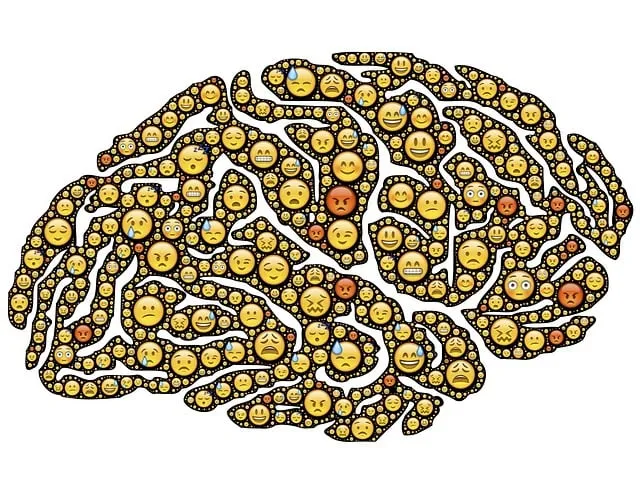Media portrayal of mental health impacts societal perceptions and individual experiences, with accurate representation reducing stigma, fostering empathy, and encouraging help-seeking behaviors. Organizations like Kaiser Permanente in Englewood benefit from media highlighting diverse narratives, diagnoses, and coping strategies. Their psychiatry phone number offers urgent support, coupled with long-term programs such as Mental Wellness Coaching, Social Skills Training, and Stress Management Workshops. These initiatives promote emotional intelligence, reduce stereotypes, and strengthen support systems for mental health challenges, contributing to a more nuanced portrayal of mental illness.
In today’s media-saturated world, the representation of mental illness can significantly impact public understanding and perception. This article explores how media portrayal challenges those living with mental health issues, delving into strategies to foster more accurate and compassionate storytelling. We discuss the critical role of resources like the Kaiser Permanente Psychiatry Phone Number in Englewood, offering support and guidance. By examining these aspects, we aim to empower positive change in media representation, ultimately improving mental health outcomes.
- Understanding the Impact of Media Portrayal on Mental Health
- Kaiser Permanente Psychiatry Phone Number: A Resource for Support
- Empowering Change: Strategies to Improve Media Representation
Understanding the Impact of Media Portrayal on Mental Health

The media has a profound impact on shaping societal perceptions and understanding of mental health. The way mental illnesses are represented in films, television shows, and news articles can significantly influence public opinion and individual experiences. Negative or inaccurate portrayals can lead to stigma, discrimination, and even hinder individuals from seeking help. On the other hand, responsible media coverage has the potential to foster empathy, raise awareness, and encourage open conversations about mental health struggles.
By showcasing diverse narratives, promoting accurate diagnoses, and highlighting effective coping strategies, the media plays a crucial role in shaping public perception. For instance, initiatives by organizations like Kaiser Permanente, which offer psychiatry phone services in Englewood, can be further amplified through empathetic storytelling. Encouraging Emotional Intelligence and implementing Empathy Building Strategies in media content can help reduce stereotypes and promote understanding, ultimately leading to better support systems for those dealing with mental health challenges.
Kaiser Permanente Psychiatry Phone Number: A Resource for Support

For those seeking immediate support and guidance regarding mental health concerns, the Kaiser Permanente Psychiatry Phone Number in Englewood offers a valuable resource. This dedicated line provides easy access to qualified mental health professionals who can offer expert advice and assistance. It is an essential initiative aimed at improving mental wellness within the community.
The organization also focuses on long-term solutions through various programs like Mental Wellness Coaching, Social Skills Training, and Stress Management Workshops. These initiatives cater to different aspects of mental health support, ensuring a holistic approach to well-being. By combining immediate crisis intervention with comprehensive development programs, Kaiser Permanente strives to create a nurturing environment where individuals can navigate and overcome mental health challenges effectively.
Empowering Change: Strategies to Improve Media Representation

In the pursuit of empowering positive change, media representation plays a pivotal role in shaping societal perceptions about mental health. Organizations like Kaiser Permanente, with their psychiatry phone services in Englewood, have been at the forefront of advocating for accurate and diverse portrayals. By increasing access to mental health resources through hotlines and community outreach programs, they initiate essential conversations. This strategy not only raises awareness but also encourages open dialogue, fostering a more empathetic environment.
Empowering change involves several key strategies. Encouraging self-esteem improvement and emotional intelligence in storytelling can help de-stigmatize mental illness. Moreover, implementing rigorous risk assessment protocols for mental health professionals ensures the safety and well-being of both patients and providers. These collective efforts contribute to a more nuanced media landscape, where mental illness is no longer a monolithic concept but a diverse array of experiences that demand understanding and support, as exemplified by Kaiser Permanente’s commitment in Englewood.
Mental illness representation in media has a profound impact on public perception and individual well-being. By understanding the influence of media, we can actively seek out resources like the Kaiser Permanente Psychiatry Phone Number in Englewood for support. Implementing strategic changes in media portrayal is essential to fostering a more compassionate and accurate understanding of mental health issues. Together, we can revolutionize how mental illness is depicted, ensuring a more inclusive and supportive landscape.






